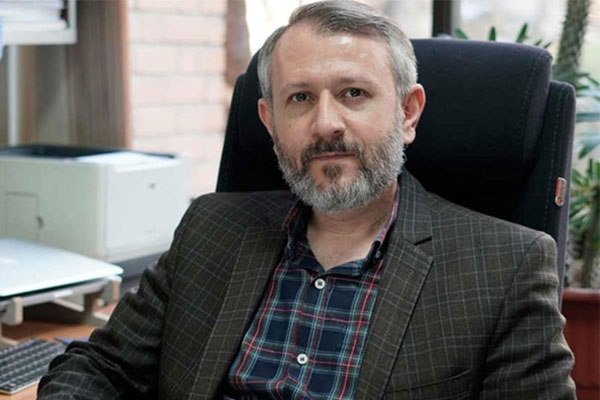
In the name of God
The Continuum of Karbala and Ashura: An Eternal Bond with Iran[1]
The event that prompted me to take up my pen—precisely 1,386 years after its occurrence—to write about its essence and its relevance to contemporary temporal and spatial contexts, is by no means a subject that hasn't been written about before. Various aspects of it have been debated and analyzed extensively. Among the most distinguished analyses is The Uprising of Imam Hussein (PBUH) by the masterful researcher Seyed Jafar Shahidi. The renowned orator, Martyr Morteza Motahhari, also addressed this crucial matter with a novel approach in his work Hamase-ye Husseini (The Epic of Hussein) in the contemporary era. The book “Insān-e 250 Sāle” (The 250-Year-Old Human) by His Eminence the Supreme Leader has expounded its manifestations from a novel perspective. This work enumerates aspects that could never be extracted or deduced through studying the event alone. Fath-e Khūn (Victory of Blood), authored by the Master of Martyrs among writers, Martyr Morteza Avini, stands as another significant literary contribution in this regard. The accounts of the events of Ashura in 61 AH in classical martyrologies such as Maqtal al-Husayn (PBUH) by Abu Mikhnaf and al-Luhuf by Sayyid Ibn Tawus are counted among the most important sources for understanding this historical event.
What distinguishes this Ashura era in my view—as I write these words inspired by Karbala's events—from recent years' commemorations, stems from the direct confrontation and blatant aggression launched by factions of the faithless front against our beloved Iran.
Although the events of Ashura in 61 AH initially appeared as nothing but the martyrdom and apparent defeat of the Prophet's (PBUH) noble household—who were vastly outnumbered compared to the dominant ideological currents of their time—the battle of narratives over the past millennium has ultimately revealed a supreme victory (Fath al-Futuh) that vividly embodies the interpretation of this sacred verse:
كَم مِن فِئَةٍ قَليلَةٍ غَلَبَت فِئَةً كَثيرَةً بِإِذنِ اللَّهِ ۗ وَاللَّهُ مَعَ الصّابِرينَ[2](verse 249, Al-Baqarah chapter)،
An event from which profound and enduring lessons emerge about the relationship between human will, convictions, and divine tradition—one whose new dimensions continue to reveal themselves across time and changing circumstances. A path nourished by the eloquent words of the Master of Martyrs: 'One like me will never pledge allegiance to one like him[3]. If the people of Kufa in 61 AH failed to recognize their Imam of the Time and abandoned him after inviting him, it is inconceivable that the pure-hearted people of Iran could falter in this recognition or fall into illusion. Especially over these 46 years since the glorious Islamic Revolution, they have proven themselves to be steadfast followers of divine guardianship (Wilāyah). The virtuous people of this land have been renowned for millennia for their honor, chivalry, and steadfastness. These qualities gained sublime significance and crystallized with the Messiah-like breath of the Great Architect of the Islamic Revolution and his preparation for the advent of the End-Times Savior:
Since time's first dawn, men's virtuous zeal
Has brought the base to their knees
This mural was designed and executed, drawing inspiration from the scene depicting the defeat and submission of Roman Emperor Valerian before Shapur I of the Sassanid Empire - a historical moment immortalized at the Naqsh-e Rostam site in Fars Province (idea and plan by Saeed Karimi)
Karbala and Ashura are not merely terms denoting a specific historical moment, but concepts woven into the very fabric of Iran's geography, history, and people. They represent a continuum - positioned not along history's errant paths, but in the most authentic imaginable dimension - manifesting the fusion of Iranian identity with religious devotion in the third millennium, showcasing an unparalleled model of liberty and spiritual insight. Trials and tribulations are divine traditions, and never think there is any escape from them. The foremost among them is jihad in the way of God.
كُتِبَ عَلَيْكُمُ الْقِتَالُ وَهُوَ كُرْهٌ لَكُمْ ۖ وَعَسَىٰ أَنْ تَكْرَهُوا شَيْئًا وَهُوَ خَيْرٌ لَكُمْ ۖ وَعَسَىٰ أَنْ تُحِبُّوا شَيْئًا وَهُوَ شَرٌّ لَكُمْ ۗ وَاللَّهُ يَعْلَمُ وَأَنْتُمْ لَا تَعْلَمُونَ[4] (verse 216, Al-Baqarah chapter)
We believe that
إِنَّ اللَّهَ يُحِبُّ الَّذِينَ يُقَاتِلُونَ فِي سَبِيلِهِ صَفًّا كَأَنَّهُمْ بُنْيَانٌ مَرْصُوصٌ[5] (verse 4, As-Saff chapter)
Though the war of Truth against Falsehood brings destruction, calamity, and martyrdom, its moments of transcendence for true believers remain unparalleled and matchless. All evidence indicates that the current battle is a war of ideologies - and undoubtedly among the most arduous forms of jihad. But we believe in the words of Almighty God, when He said:
إِذْ تَقُولُ لِلْمُؤْمِنِينَ أَلَنْ يَكْفِيَكُمْ أَنْ يُمِدَّكُمْ رَبُّكُمْ بِثَلَاثَةِ آلَافٍ مِنَ الْمَلَائِكَةِ مُنْزَلِينَ[6] (verse 124, Āl 'Imran chapter)
In this verse, worldly calculations and material considerations are set aside in the most self-evident manner—when faithful servants, with genuine and steadfast faith, recognize their duty against the front of falsehood and take necessary action based on divine piety, performing what is righteous. Verily, the sublime peaks and noble origins of the God-worshippers' felicity become manifest in the crucible of jihad. And when combined with perseverance, patience, and piety, this fusion prepares the ground for divine succor on an unprecedented scale:
بَلَىٰ ۚ إِنْ تَصْبِرُوا وَتَتَّقُوا وَيَأْتُوكُمْ مِنْ فَوْرِهِمْ هَذَا يُمْدِدْكُمْ رَبُّكُمْ بِخَمْسَةِ آلَافٍ مِنَ الْمَلَائِكَةِ مُسَوِّمِينَ[7] (verse 125, Āl 'Imran chapter)
Among the core teachings of Ashura and the uprising of the Father of the Free [Imam Hussein]—not only for us Iranians in this era, but for all freedom-seekers worldwide—is that we must focus more than ever on this truth: There is no change in Allah’s eternal law of supporting the oppressed, and ultimate sovereignty over the earth will indeed be granted to the faithful oppressed who, with true faith, recognize the right of their Imam and steadfastly persevere on the path of revolution with clear insight. Here, one can fully receive the glad tidings of deliverance (faraj) and comprehend it with heart and soul. Indeed, current events now confirm more than ever this truth: Only through faith in God, patience and perseverance, and submission to the Guardian of the Affair (Wali al-Amr) can one attain the ultimate bliss (ahdā al-husnayayn):
قُل هَل تَرَبَّصونَ بِنا إِلّا إِحدَى الحُسنَيَينِ[8] (verse 52, At-Tawbah chapter)
And those who do not attain martyrdom on this path will ultimately die regardless - yet how glorious is martyrdom in the way of faith and homeland! What profound ambition we, the faculty members of Shahid Beheshti University, feel—we who for years breathed the same air as these luminaries of our land, lived alongside them, shared conversations and debates, collaborated to elevate the scientific standing of our beloved nation, and worked together to educate a generation devoted to this country—that they were so unjustly selected for martyrdom. Blessed is their eternal bliss, and alas for us who remain:
"We imagine that we remain while the martyrs have departed, but the truth is that time has carried us away while the martyrs remain."
(Martyr Morteza Avini)
With steadfast faith, we believe that through the pure blood of martyrs, unity, sacrifice, and resistance take root and bear fruit. Now our duty as mujahideen in the realm of science and technology has grown profoundly more arduous and critical—for we are certain that greater capability brings greater responsibility, and consequently, more extensive service to the nation and higher moral value. Therefore, we must become the firm foundation of this struggle, by the power and strength of God:
وَکَأَیِّن مِّن نَّبِیٍّ قَاتَلَ مَعَهُ رِبِّیُّونَ کَثِیرٌ فَمَا وَهَنُواْ لِمَا أَصَابَهُمْ فِی سَبِیلِ اللّهِ وَمَا ضَعُفُواْ وَمَا اسْتَکَانُواْ وَاللّهُ یُحِبُّ الصَّابِرِینَ [9](verse 146, Āl 'Imran chapter)
وَمَا تَوْفِيقِي إِلَّا بِاللَّهِ ۚ عَلَيْهِ تَوَكَّلْتُ وَإِلَيْهِ أُنِيبُ[10]
Seyed Mohammad Sadegh Movahed
Professor of Physics,
Shahid Beheshti University
6 July 2025
Tehran, Iran
[1] This brief text is written on the occasion of the anniversary of Imam Hussein’s (a.s.) Ashura, the savage Israeli regime’s attack on my beloved homeland Iran, and my longing for my dear martyred colleagues at Shahid Beheshti University—especially my beloved friend and mentor, Martyred Professor Dr. Mohammad Mehdi Tehranchi, and Martyred Seyed Amirhossein Feghhi, who were assassinated by the usurping Zionist regime on the evening of June 12, 2024 (23 Khordad 1404).
[2] How many a small party has overcome a larger party by Allah’s will! And Allah is with the patient
[3] مثلی لایبایع مثله, One like me (Hussein) will never pledge allegiance to one like him (Yazid)
[4] Warfare has been prescribed for you, though it is repulsive to you. Yet it may be that you dislike something, which is good for you, and it may be that you love something, which is bad for you, and Allah knows and you do not know.
[5] Indeed Allah loves those who fight in His way in ranks, as if they were a compact structure.
[6] When you were saying to the faithful, ‘Is it not enough for you that your Lord should aid you with three thousand angels sent down?
[7] Yes, if you are steadfast and Godwary, and should they come at you suddenly, your Lord will aid you with five thousand angels sent in [to the scene of battle].
[8] Say, ‘Do you not await one of the two excellent things to happen to us (either victory or martyrdom)?
[9] How many a prophet there has been with whom a multitude of godly men fought. They did not falter for what befell them in the way of Allah, neither did they weaken, nor did they abase themselves; and Allah loves the steadfast.
[10] And my success lies only with Allah: in Him I have put my trust, and to Him I turn penitently (verse 88, Hud chapter).

